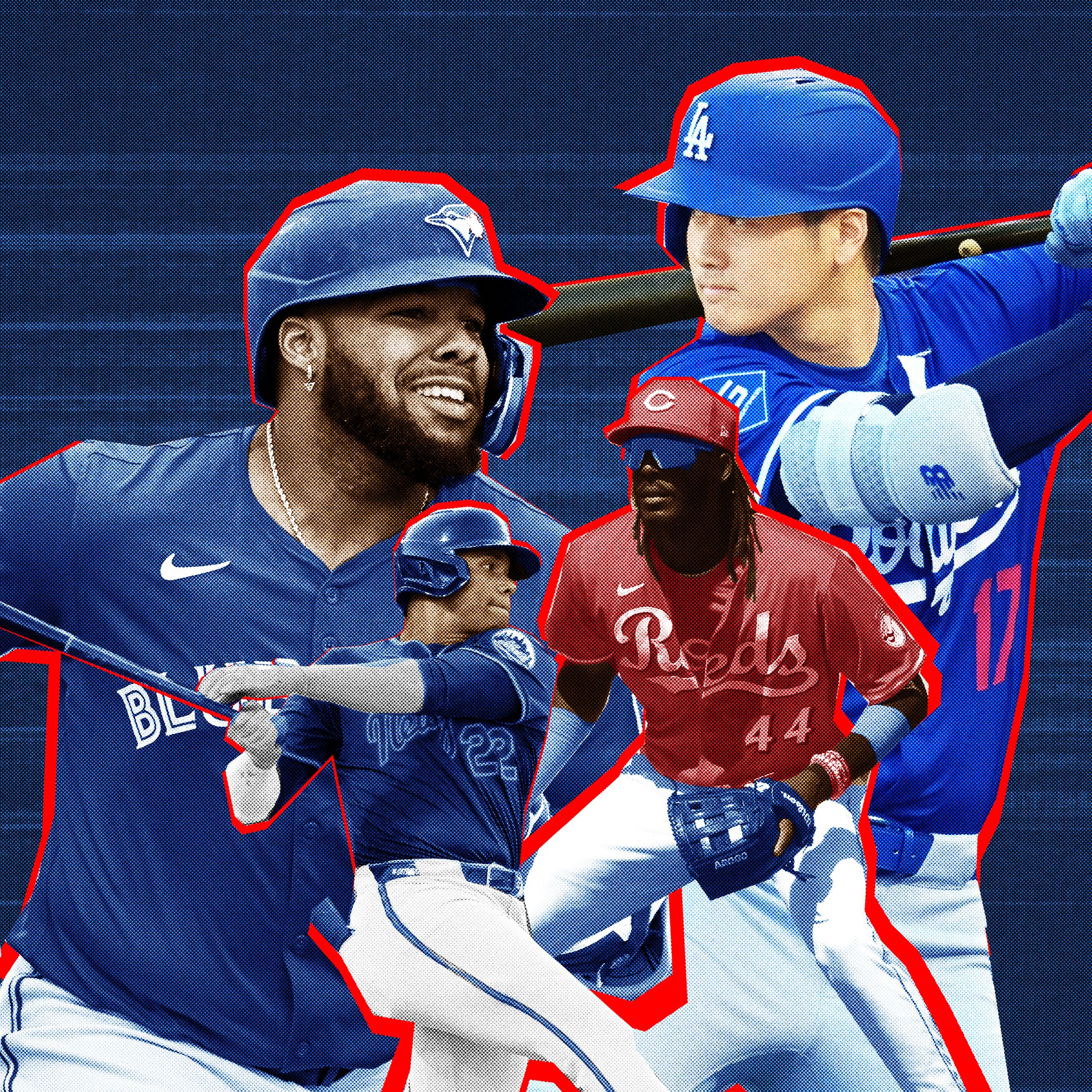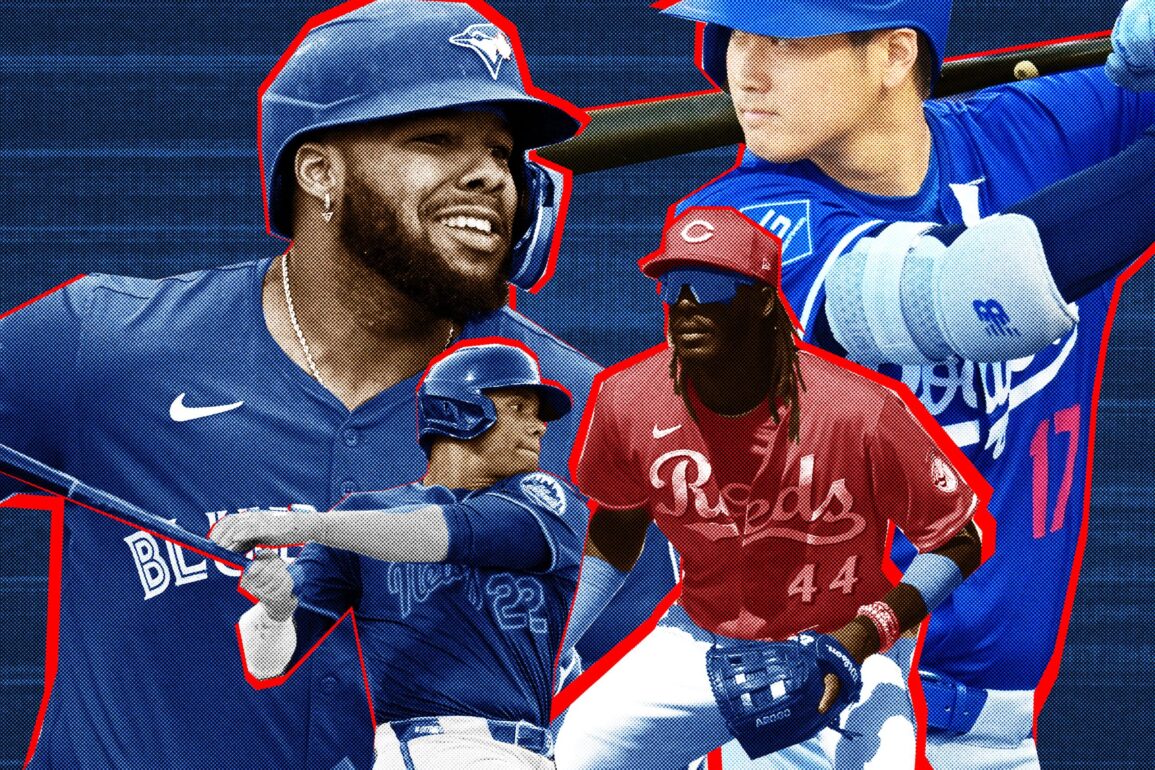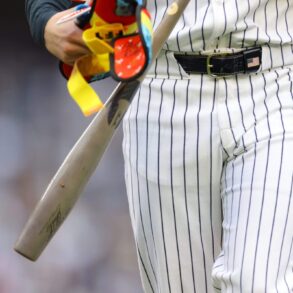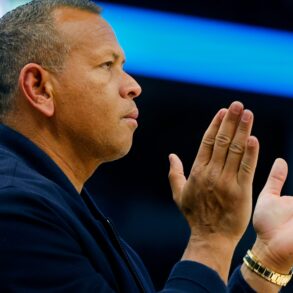
Peter Gammons is synonymous with baseball on ESPN. Never mind that he hasn’t worked there in more than 15 years. Gammons––like Dick Vitale and college basketball, or Chris Berman and the NFL––will forever be linked to the network’s coverage of the sport. When he was hired in 1988, Gammons was already regarded as one of the preeminent baseball reporters, with tenures at the Boston Globe and Sports Illustrated. ESPN, meanwhile, wasn’t even airing big league games.
But that soon changed when the “Worldwide Leader in Sports” got into business with the national pastime, securing broadcasting rights for Major League Baseball games. In 1990, ESPN launched Baseball Tonight, a formative program for generations. Gammons still gets approached by fans of the show, including players who used to watch it during summer evenings of their youth. “It was the first baseball show of its kind,” Gammons said in a phone interview this week. “It’s just really great that the show had such an impact.”
Over the course of two decades, Gammons was an on-air fixture for some of the sport’s most indelible chapters: the epic 1991 World Series between the Minnesota Twins and Atlanta Braves; Hideo Nomo’s electrifying rookie season in 1995; the (now tainted) season-long home-run chase of 1998 between Mark McGwire and Sammy Sosa. In an era when baseball was one of ESPN’s signature draws, Gammons became one of its most visible personalities. “Those were great times,” he said.
Times have changed at ESPN, where baseball’s footprint has steadily diminished since Gammons left in 2009. Baseball Tonight went from airing nightly to just once a week starting in 2017. In 2021, under a newly negotiated deal extension with MLB, ESPN scaled back its previous schedule of about 90 games per season to 30. Next season, it may have none at all. ESPN and MLB are currently at loggerheads after the two sides agreed last month to opt out of the final three years of their current deal.
The decision means that ESPN’s current package––for which it pays an average of $550 million a season to receive exclusive rights to Sunday night games, as well as the Home Run Derby and the postseason wild card round––could find a new home come 2026. Or perhaps several homes: MLB is reportedly looking to break up ESPN’s rights and sell them to multiple partners, which could include a mix of traditional broadcasters and streamers. ESPN has also not closed the door on a new deal—either for next season or in 2028, when all of MLB’s national and international broadcasting rights will go to market. But the league clearly feels undervalued in Bristol, where executives have sought lower rights fees from MLB while reducing baseball to a peripheral topic on ESPN programming.
Gammons, of course, is still holding out hope for a rally from his former employer.
“I still think there’s a chance that ESPN will come back and do a schedule somewhat similar to what they do now,” he told me. “I still think there’s a role for it.”
There was a time when ESPN couldn’t get enough baseball. In 2005, the cable giant signed a deal with MLB that expanded its rights to show games on new platforms, including mobile phones. “We’re important to ESPN,” Bob DuPuy, MLB’s then president and chief operating officer, said at the time.
The league is less central these days, as ESPN’s live sports and studio shows have reoriented themselves around the NFL, college football, and the NBA. The Walt Disney Company, which owns the ESPN networks and ABC, shells out billions of dollars annually for the broadcasting rights to those sports, which includes a robust postseason offering. For now, ESPN and ABC currently serve as the exclusive homes of the College Football Playoff and the NBA Finals, respectively, while both networks will broadcast the Super Bowl in 2027 and 2031. The two networks will also broadcast the Super Bowl in 2027 and 2031. But ESPN’s aggressive acquisition of live-sports rights has coincided with its attempts to cut costs elsewhere, which have included layoffs.
All of that provided the backdrop for ESPN’s pursuit of a lower rights fee with MLB earlier this year. Executives at the network had come to find the $550 million annual price tag to be hefty for a largely regular-season package. (While ESPN airs the wild card round, Fox and Warner Bros. Discovery, the parent company of TBS, own the rights to the division series and league championship series. The World Series has aired exclusively on Fox since 2000.) Moreover, according to The Washington Post, people familiar with ESPN’s discussions with MLB have noted that the network has been paying far more than other partners with regular-season deals, including Apple TV, which pays $85 million a year to broadcast 50 Friday night games, and Roku, which is paying $10 million for 30 Sunday games.
Late last year, ESPN chairman Jimmy Pitaro reportedly informed MLB commissioner Rob Manfred of the network’s plans to exercise the opt-out clause in its deal with the league, although Pitaro also expressed interest in negotiating a new contract at a more palatable price point. According to The Wall Street Journal, ESPN was “looking to cut its deal with MLB by more than half, to no more than $200 million a year.” The proposal was reportedly not well-received by Manfred, who responded with the C-suite equivalent of some chin music.
In a memo to MLB’s owners, reported by The Athletic last month, Manfred swatted away ESPN’s attempts to compare its package to others, pointing out that the “ESPN deal contains the only truly exclusive regular season windows on Sunday nights, the exclusive right to an entire round of playoffs, and the Home Run Derby,” while Apple and Roku “have games that compete against a complete slate of other games broadcast in local markets.” He also took some direct swings at ESPN’s reach and programming. As cord-cutting continues to chew away at cable subscriptions, Manfred noted that ESPN is available in fewer households, saying that it wouldn’t be “beneficial for us to accept a smaller deal to remain on a shrinking platform.” And for good measure, he revealed simmering frustration that dates back to the diminution of Baseball Tonight, saying that the league has “not been pleased with the minimal coverage that MLB has received on ESPN’s platforms over the past several years outside of the actual live game coverage.”
The tenor was striking for a memo of its kind; Pitaro, in an interview with The Athletic, admitted that he was “caught a bit by surprise” by some of Manfred’s comments.
For Manfred, it was a declaration that MLB isn’t going to settle for less, especially in an era of eye-popping valuations for live sports. With a 162-game schedule––amounting to 2,430 regular-season games across all 30 teams––baseball offers partners an unparalleled amount of inventory, with much of it occurring during a relative dead zone on the sporting calendar. Last week, Manfred indicated that MLB plans to bundle its domestic and international media rights, which could be enticing for a streamer with worldwide reach such as Apple or Netflix.
When I caught up with Manfred by phone this week, he noted that baseball’s lengthy schedule could be particularly attractive to streamers.
“The biggest challenge you have when you’re running a streaming company is how are you going to have relatively fresh content that attracts people on an ongoing basis,” Manfred told me. “And 2,430 games is relatively fresh content.”
As a new season gets under way this week, baseball is riding a wave of momentum. The sport is brimming with exciting young players, such as Juan Soto, Elly De La Cruz, and Vladimir Guerrero Jr., along with a bona fide global phenomenon in Shohei Ohtani. Major rule changes, including the advent of a pitch clock, have improved the quality of play. Revenue, attendance, and television ratings are reportedly all up. In his memo to owners, Manfred highlighted that last year’s ratings for Sunday Night Baseball on ESPN were up 6% from 2023, which he said was “notable given that 2024 was a summer Olympics year.” Last year’s World Series between the New York Yankees and Los Angeles Dodgers averaged 15.8 million viewers—eclipsing the 11.3 million who tuned in for the NBA Finals.
MLB is also a local TV juggernaut. Last season, the league reported that ratings for prime-time games ranked first locally on cable in 20 out of the 25 markets in the United States with teams. The league also pointed to growth in viewership in Latin America and Asia, and, in recent years, has held regular-season games in Seoul, Mexico City, and London. This month’s “Tokyo Series,” a two-game set between the Dodgers and Chicago Cubs, were the two most-watched MLB games ever in Japan.
Given all those data points, and the increased importance of live sports for broadcasters and streamers, Manfred is eyeing a massive media deal in 2028, when MLB’s full suite of TV rights will be open for bidding. He has designs on the league taking over the local linear and digital rights for all 30 teams to include in negotiations, which could net an even more lucrative deal. (MLB enters this season holding the local media rights to five teams following the bankruptcy of Diamond Sports Group, the country’s largest operator of regional sports networks.)
The NBA’s latest media-rights deal, which was brokered last year and is worth a reported $6.9 billion annually, appears to be a north star for MLB. Scott Boras, the powerhouse baseball agent, told The Washington Post earlier this month that “the rights for baseball were grossly undervalued” and “going forward, what the NBA got is the basement.”
Whether MLB is able to match the NBA remains to be seen, but the negotiations over ESPN’s baseball package could offer a preview of what’s to come in 2028. NBC said that it is interested in a piece of the package, and it would figure to be a natural home for the Sunday night games. The network has had Sunday night NFL games since 2006, and will show NBA games in that time slot beginning next season. Fox has also said that it will look into grabbing a portion of the ESPN package. And then there are the tech giants. Apple TV could look to expand its current deal with MLB, while Amazon Prime Video has reportedly had talks with the league. Netflix, which has shown an appetite for tentpole live events such as the Jake Paul–Mike Tyson fight and the NFL Christmas doubleheader, has been floated as a possible landing spot for the Home Run Derby.
ESPN could also find its way back in the rotation. Pitaro has been public about his interest in a baseball package that also includes local rights, particularly as ESPN prepares to launch a new over-the-top streaming service later this year. He said this month that he is open to reopening negotiations with MLB. By all accounts, that hasn’t happened yet. One source familiar with ESPN’s thinking said that the two sides are in a “cooling-off period.”
It’s unclear whether any amount of time will bridge the gap between how they view the sport. Despite the ratings bump for Sunday night games last season, MLB was still not a lucrative investment for ESPN. According to Sportico, last year’s MLB package “was ESPN’s 10th-biggest driver of ad sales revenue, trailing the likes of the NHL ($62.8 million), as well as the studio shows Get Up ($79.5 million) and First Take ($96.6 million).”
The NBA’s viewership is younger than MLB’s, and its stars are more culturally resonant. That may be the simplest explanation for why ESPN doesn’t value the sport the same—or why Stephen A. Smith and the First Take crew spend more time talking more about Bronny James than Mookie Betts.
“Baseball’s probably not a huge money maker anymore for ESPN. They mostly have the regular season and Sunday games, and it’s the postseason that makes the money,” said John Mansell, a sports media analyst. “On the other hand, baseball likes what they’ve got. They figure they have plenty of alternatives, and they do.”
For Gammons, the messy split between ESPN and MLB is like getting stuck in the middle of a family feud. “I care terribly about ESPN,” Gammons told me, although he admits that the erosion of baseball coverage there has left him disappointed. He was “really bothered” by the decision to make Baseball Tonight a weekly show, and he wishes that ESPN would give its MLB analysts more airtime. “In my eyes, baseball hasn’t faded,” he said. “In others’ eyes, maybe it has a little bit.”
More Great Stories From Vanity Fair
This post was originally published on this site be sure to check out more of their content.








